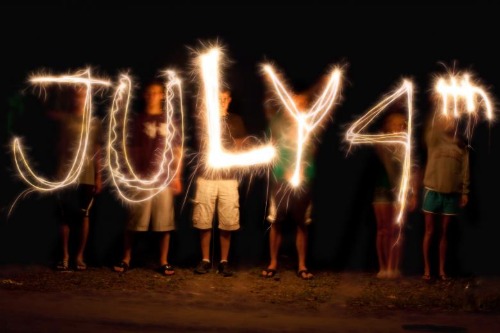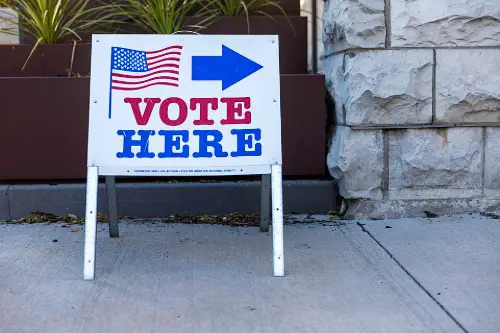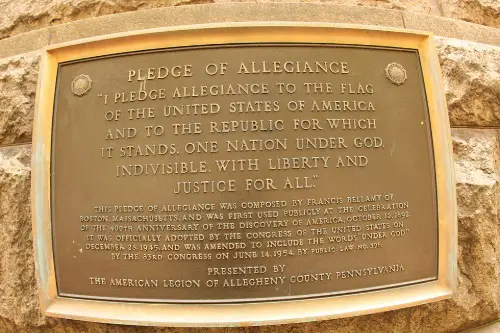1. Fireworks on the Fourth of July

Fireworks are a staple of American Independence Day celebrations, but for many people, they’re a loud, unpredictable source of stress. Veterans with PTSD, children with sensory sensitivities, and pets often suffer through the booms and flashes. While intended to symbolize “the rockets’ red glare,” the reality is often anxiety and sleep disruption. Not to mention, fireworks cause thousands of injuries and hundreds of wildfires each year.
Communities across the country have begun rethinking fireworks, opting for alternatives like drone shows or quieter fireworks. But there’s still a strong cultural resistance to changing tradition, even when it harms people. It’s hard to question fireworks without being accused of being “un-American.” That kind of pressure can make people feel isolated for simply wanting a peaceful evening.
2. Standing for the National Anthem

On paper, standing for the national anthem is a simple gesture of respect. But in practice, it’s become a political litmus test that puts people under intense scrutiny. Whether someone kneels, sits, or sings along enthusiastically, others are watching—and judging. The act is no longer just patriotic; it’s performative and polarizing.
This is especially true at sporting events, where anthem-related protests have sparked nationwide debates. People feel forced to make a public declaration about their beliefs, even when they just came to watch a game. For those with complicated feelings about America, the pressure to conform can feel suffocating. Instead of uniting people, it often highlights deep divisions.
3. Voting as a “Civic Duty”

Yes, voting is crucial for democracy—but framing it as a duty rather than a right can guilt people more than it empowers them. Long lines, confusing registration rules, and voter suppression tactics make access uneven across communities. Telling people they must vote without addressing these barriers adds another layer of pressure. It also shames people who may genuinely feel disillusioned or unrepresented.
During election season, the constant “no excuses” messaging ramps up stress levels. People worry about making the “right” choice, or feel overwhelmed by ballot measures and misinformation. For marginalized voters, the process often feels like fighting upstream. It’s no wonder so many opt out—not from apathy, but exhaustion.
4. Displaying the American Flag

Flying the flag might seem like a neutral act of national pride, but its meaning varies wildly depending on who’s doing it and why. For some, it’s a symbol of freedom and sacrifice; for others, it’s been co-opted by extremist groups. That tension makes displaying it a complicated decision, not a simple sign of unity. People worry about being misinterpreted or associated with ideologies they don’t support.
It’s also become common for businesses and influencers to use the flag more for branding than patriotism. The symbolism can feel hollow when it’s wrapped around fast food ads or swimsuit lines. For many Americans, especially younger ones, the flag doesn’t automatically signal inclusion. Instead of bringing people together, it can unintentionally send mixed—and stressful—messages.
5. Military Appreciation at Public Events

Thanking service members for their sacrifice is well-intentioned, but mass displays of military appreciation can feel more like performance than support. Stadiums and schools often organize elaborate ceremonies that spotlight soldiers, but do little to address the challenges they face after service. Things like homelessness, mental health care, and veterans’ benefits get far less attention. The spectacle can feel like a substitute for real action.
For some veterans, the attention is overwhelming or even triggering. Others may feel uncomfortable being used as symbols rather than people. There’s also the unspoken expectation that everyone must cheer, clap, or participate—or risk seeming disrespectful. The pressure to react “correctly” can be a real source of discomfort.
6. Saying “Support the Troops”

The phrase “Support the troops” sounds universally positive, but it often shuts down conversation rather than opening it. It’s become a catchphrase that’s hard to question, even when it’s used to justify controversial policies. Politicians and brands use it to score easy points without actually helping military families or veterans. That can feel manipulative, especially to those who have served.
The phrase also tends to lump all service members into one narrative, ignoring the diversity of their experiences and beliefs. People are often hesitant to express dissent or question military spending for fear of seeming unsupportive. In that way, “Support the troops” becomes a social obligation more than a personal belief. It adds a layer of pressure to conform, rather than encouraging honest discussion.
7. Reciting the Pledge of Allegiance

Reciting the Pledge of Allegiance is a daily ritual in many schools, but not everyone finds it meaningful—or comfortable. Students may feel pressured to stand and recite words they don’t understand or agree with. The phrase “under God” has been especially controversial, given the country’s commitment to religious freedom. Yet refusing to participate can lead to bullying or disciplinary action.
Adults may forget how nerve-wracking this ritual can be for kids, especially those from immigrant families or with differing political beliefs. The pledge turns classrooms into ideological spaces rather than neutral learning environments. In some cases, students have even been punished for exercising their legal right to sit out. What’s billed as patriotism often feels more like forced allegiance.
8. Memorial Day Sales

Memorial Day is supposed to honor fallen service members, but for many Americans, it’s more associated with car discounts and mattress blowouts. Retailers lean hard into patriotic imagery while promoting everything from hot dogs to garden tools. The result is a weird mix of solemn remembrance and consumer frenzy. That dissonance leaves a lot of people feeling uncomfortable.
For families who have lost someone in service, the commercialization can feel disrespectful and tone-deaf. The meaning of the day gets lost under red, white, and blue price tags. It’s hard to reconcile the grief of mourning with the cheeriness of a shopping weekend. And yet opting out can feel like rejecting a national tradition, which only adds to the stress.
This post 8 Things That Sound Patriotic—But Mostly Just Stress Americans Out was first published on American Charm.


